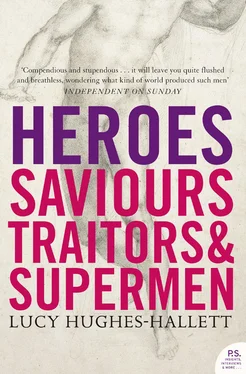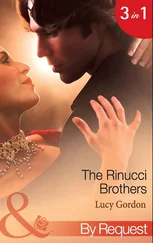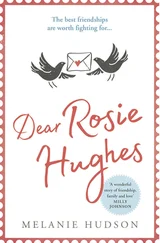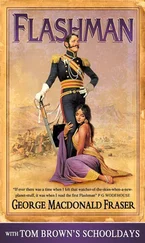The notion of the hero – that some men are born special – is radically inegalitarian. It can open the way for tyranny. ‘Beware the pursuit of the Superhuman,’ wrote George Bernard Shaw. ‘It leads to an indiscriminate contempt for the Human.’ True. Carlyle’s friend Ralph Waldo Emerson, who wrote ‘Life is sweet and tolerable only in our belief in great men’, saw the prime function of the great man as that of rendering ‘ indemnification for populationsof pigmies’, while humanity en masse seemed to him ‘disgusting, like moving cheese, like hills of ants or fleas.’ Such a revulsion from the majority of one’s fellow beings, combined with an exaggerated admiration for the exceptional few, makes a politically poisonous mix.
But a wariness of the potentially pernicious effects of hero-worship hasn’t made me immune to the intoxicating allure of the hero. The people I have written about here are all compelling personalities whose life stories – tragic, inspirational, or shocking – have been told and retold over centuries, in some cases millennia, because they are so dramatic, so full of complex resonance, and so profoundly moving. The idea of the hero would not be so emotionally disturbing or so politically dangerous were it not so potent.
I am not a debunker, more a collector and analyst of bunk. I shall repeatedly be pointing to discrepancies between the ascertainable facts about heroes and the legends that grew up around them. I do so not as an iconoclast but because the process whereby heroes’ characters and curricula vitae are adjusted to suit the moral values and emotional needs of those who adore them is a fascinating one. That most idols have feet of clay is a banality: what is interesting is the question why, knowing it, we are still enthralled by them. Cato was an inept politician who repeatedly handed advantages to his opponents, but his contemporaries thought him a man in ten thousand, and his admirers in the next generation revered him as a god. Francis Drake turned aside from the pursuit of the Spanish Armada to grab a disabled ship as his own prize, imperilling the entire English fleet by doing so, but his popularity was undiminished by the action: on the contrary, when the news reached London bonfires were lit in celebration. Byron and Keats had both read their Plutarch: they knew all about Alcibiades’ treachery. Yet Byron wrote ‘ no name comes downfrom antiquity with a more general charm than that of Alcibiades’, while to Keats ‘ Alcibiades, leaningon his crimson couch in his galley, his broad shoulders imperceptibly heaving with the sea’ was the embodiment of the abstract idea of the heroic, ‘large, prominent, round and coloured with magnificence’.
Heroes are insubordinate: that is part of their glamour. Several of the people I have written about followed Achilles in defying their political masters: in doing so they were acting within a well-established heroic tradition. There are men, wrote Aristotle, so godlike, so exceptional, that they naturally, by right of their extraordinary gifts, transcend all moral judgement or constitutional control: ‘ There is no lawwhich embraces men of that calibre: they are themselves law.’ Such men inevitably clash with the established powers that their inordinate personal prestige subverts. The legendary Persian hero Rustum quarrelled with his king and refused his services. Horatio Nelson is at his most heroic with his telescope clamped to his blind eye. George Custer was court-martialled barely a week after he graduated from West Point and afterwards he so frequently annoyed his superiors that he would have been excluded from the Little Big Horn campaign had not a storm of public protest obliged President Grant to restore him to his command.
One who has become the object of hero-worship is hard to accommodate in a well-ordered state. Established authority has often been highly (and justifiably) suspicious of the heroes that served it. The Cid and Wallenstein were both dismissed by the royal masters who feared and envied them. Garibaldi was and is revered as the valiant creator of a united Italy, but he was repeatedly imprisoned or blockaded on his tiny island home by the state he had brought into being.
Most heroes are rebels. A startling number are actually traitors. Achilles, having quarrelled with Agamemnon, prayed that his fellow Greeks might be defeated. Lancelot was the most complete knight at Arthur’s Round Table, but he brought about the collapse of the civilization of which he was paragon. Of my six historical heroes, five fought at some point against their compatriots (a fact that did not prevent their passing into legend as national heroes). Drake is the exception: but though he never had political power enough to precipitate a confrontation with his queen, he frequently disobeyed her.
Hero-worship is the cult of the individual, and the hero is always imagined standing alone. The heroes of classical mythology were homeless wanderers, and so are those of modern legend, be they cowboys or police officers, vigilantes or secret agents. They are brilliant mavericks, outsiders coming in from elsewhere to handle an emergency before riding off into the sunset. The wanderer seems to the settled majority to be free and invulnerable. As Herodotus wrote of the nomadic Scythians: ‘ This people has no citiesor settled forts: they carry their houses with them and shoot with bows from horseback: they live off herds of cattle, not from tillage, and their dwellings are on their wagons. How then can they fail to be invincible?’ Much more can be expected of a stranger, whose unfamiliarity makes him a blank screen for the projection of fantasies, than could ever be asked of someone familiar. Historical heroes, whose status depends at least in part on the public’s identification of them with legendary counterparts, have frequently been people with no fixed position in the society that expected such great things of them. Wallenstein, the protector of the Austro-Hungarian-German empire, was a Czech. Garibaldi, the maker of Italy, was born in France, wore the costume of a South American gaucho, and until the end of his life still needed a dictionary by him when writing in Italian.
The responsibilities of government do not combine well with the individualism expected of the hero. Achilles, wrote Aristotle, was that rare, not quite human creature, a non-political man, ‘ a non-cooperatorlike an isolated piece in a game of draughts’. None of my subjects was a head of state (although the Cid, at the end of his life, created a new state for himself). They are the successors, not of Agamemnon but of Achilles, not of Arthur but of Lancelot, not of Jehovah but of Jesus Christ. In the 1880s, Friedrich Nietzsche defined the state – any state – as ‘ a fearful tyranny, a remorseless machine of oppression’ against which he opposed the heroic figure of the ‘superman’. Nietzsche’s superman is ‘ like a starthrown forth into empty space and into the icy breath of solitude’. He has no community within which to hide, no religion, legal system, or moral code as guide, no group or institution to share the responsibility for his choices. He is terrifyingly exposed. ‘Can you furnish yourself with your own good and evil and hang up your own will above yourself as a law?’ asks Nietzsche’s Zarathustra. ‘Can you be judge of yourself and avenger of your law?’ Achilles took it upon himself to do so, repudiating his allegiance to Agamemnon, denying any obligation to his fellow Greeks, choosing to answer to no human authority save his own, and insisting on his right to determine when and on whose behalf he would exercise his devastating skills. And although some of my subjects – Cato, with his embarrassing clothes and pernickety accountancy; tubby, venal Drake – are scarcely the kind of resplendent figures Nietzsche had in mind, the same proud rejection of a communal identity has been the mark of the hero throughout the millennia covered by this book.
Читать дальше












